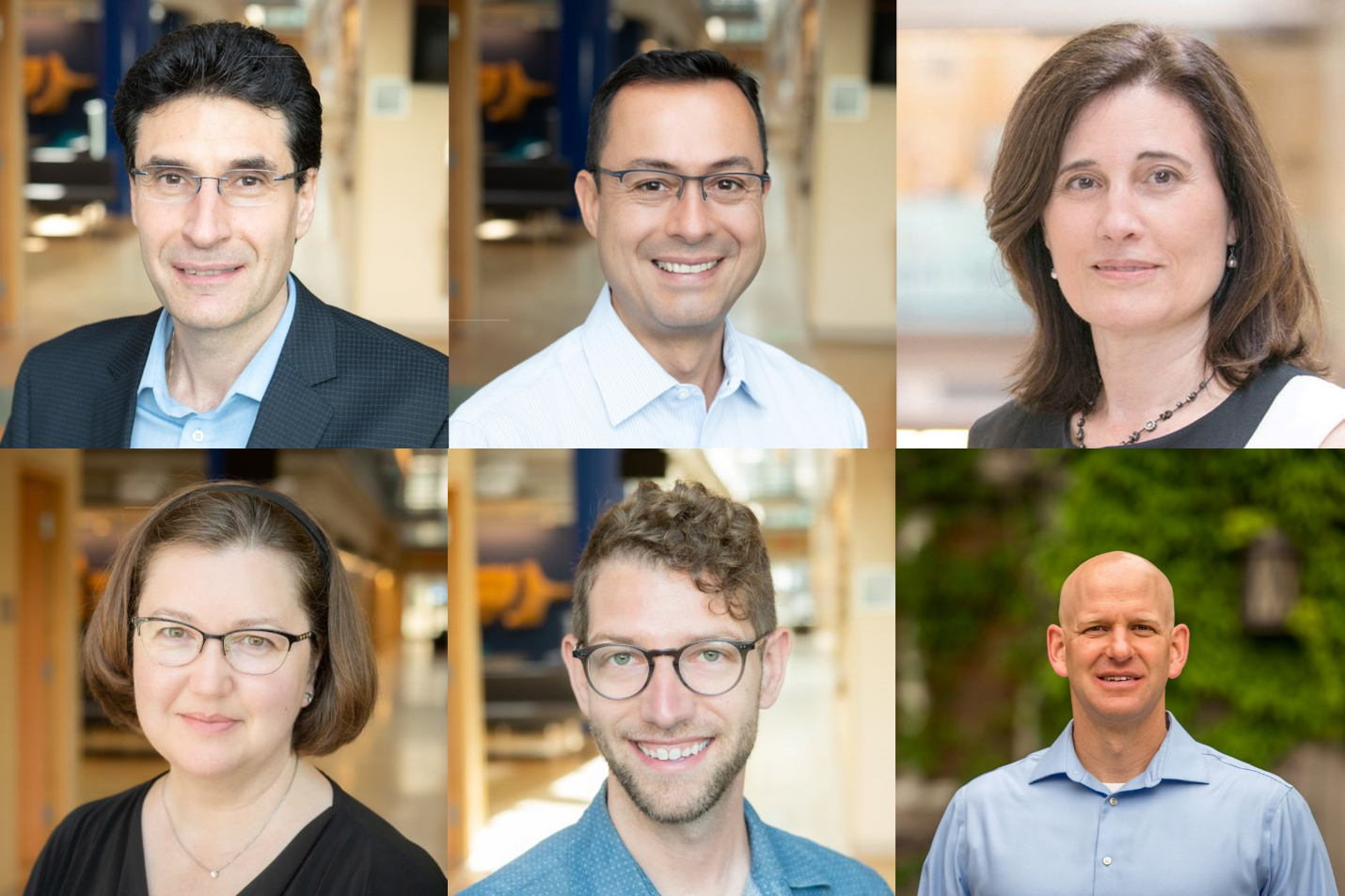Congratulations to Chemical Engineering Researchers, Aris Docoslis, Carlos Escobedo, Marianna Kontopoulou, Louise Meunier, Paul Hungler and Kevin De France who have been awarded a total of $515,000 in new Research Funding from the Natural Sciences and Engineering Research Council of Canada (NSERC) Discovery Grant (DG) and Research Tools and Instruments (RTI) Programs.

Aris Docoslis (Principal Investigator), Carlos Escobedo, Marianna Kontopoulou, Louise Meunier, and team member Zhe She (Chemistry), received the only RTI awarded in Smith Engineering at Queen's valued at $149,500 to support a Raman spectroscopy system for (bio)chemical analyses and materials characterization. Raman spectroscopy is an analytical method that enables time efficient and ultrasensitive physicochemical characterization of chemical and biological samples. It can combine the benefits of highly sensitive, albeit centralized and complex, equipment with the user friendliness of portable but less sensitive units. The new Raman system will support six research labs at Queen’s, serving as the mainstay for existing and future cross disciplinary collaborations with government, industry and other academic researchers within and outside Queen’s. It will be used to develop methods for rapid detection and identification of illicit drugs, antibiotic resistant bacteria and chemicals of emerging concern in the environment (e.g., PFAS). The instrument will also support research towards the development of innovative graphene-based products, such as durable coatings, smart materials, flexible electronics, and energy storage devices. The researchers expect to train at least 42 HQP using this equipment in the next 5 years.
Kevin De France received a Discovery Grant worth $172,500 including an Early Career Researcher stipend of $12,500. His research program focuses on the design of functional materials from cellulose- and protein-based ‘building blocks’ (two of the most abundant raw materials on our planet) for a variety of applications. Using a circular approach, his group will prepare and characterize these bio-based building blocks, which are then used to fabricate materials such as gels, emulsions, and films. Material performance is then analyzed for targeted applications, with results fed-back to design the next generation of building blocks. The implementation of this program will result in the promotion of clean technology for various applications in fields spanning the biomedical, packaging, consumer goods, and environmental sectors across Canada. Inspired by nature, the assembly of cellulose nanocrystals and protein amyloid fibers into structured materials can alleviate our societal reliance on traditional plastics, paving the way for truly advanced materials. You can learn more about his program here.
Paul Hungler received a Discovery Grant worth $192,500 including an Early Career Researcher stipend of $12,500 to develop dynamically adaptive mixed reality simulation for training and education, particularly for immediate applications in aviation and medical training. Physiological data from a variety of biosensors will be used in a machine learning pipeline to investigate and classify cognitive load, a key construct for optimizing performance in training and education. Deep learning and multimodal machine learning approaches will be analyzed and developed to determine how best to combine physiological signals for the creation of higher order classifiers. The data from the machine learning pipeline will be fed back into a mixed reality simulation which will facilitate the modification of the user experience to either increase or decrease the difficulty based on the results of the classifier. This process will result in a dynamically adaptive simulation that is personalized, providing improved learning outcomes, and reducing time to competency. This has the potential to reduce the time required for pilots to achieve competency, thus reducing training time and helping to address the worldwide pilot shortage. You can learn more about his program here.
To learn more about these awards, please see the news release from NSERC, Over half a billion to support fundamental research and help train the next generation of scientists and engineers.